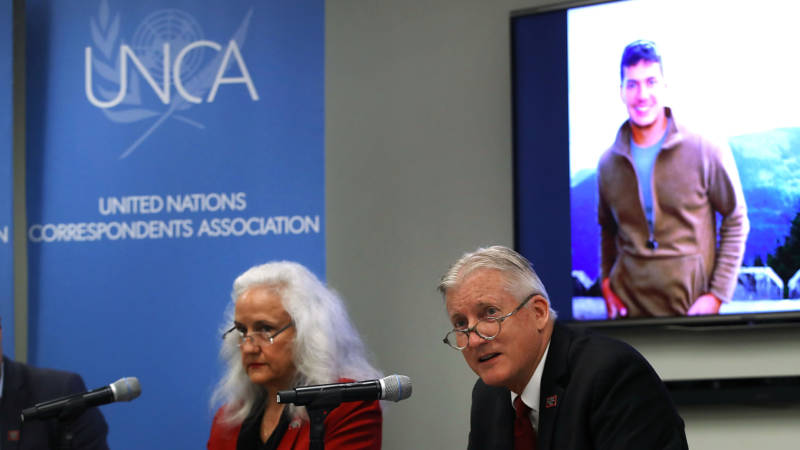The mantra “We will not negotiate with terrorists” has long guided American policy on rescuing hostages, the idea being that paying ransom only encourages kidnapping and terrorism. But in his new book, “We Want to Negotiate: The Secret World of Kidnapping, Hostages and Ransom,” journalist Joel Simon argues for a different approach, one he calls “strategic ambiguity.” Simon compares U.S. hostage situations with those involving European nations that routinely pay ransom. We’ll talk with Simon about his book and about his work as executive director of the Committee to Protect Journalists.
'We Want to Negotiate' Challenges U.S. Policy on Not Paying Ransom for Hostages
52:28

In coordination with the United Nations Correspondents Association, Reporters Without Borders and the Committee to Protect Journalists (CPJ), Marc and Debra Tice hold a news conference about their missing son American journalist Austin Tice on September 17, 2018 at the United Nations in New York City. Austin Tice, a journalist and Marine veteran, was abducted by unknown assailants while reporting on the war in Syria six years ago. (Photo: Spencer Platt/Getty Images)
Guests:
Joel Simon, executive director, Committee to Protect Journalists; author, "We Want to Negotiate: The Secret World of Kidnapping, Hostages and Ransom"
Sponsored